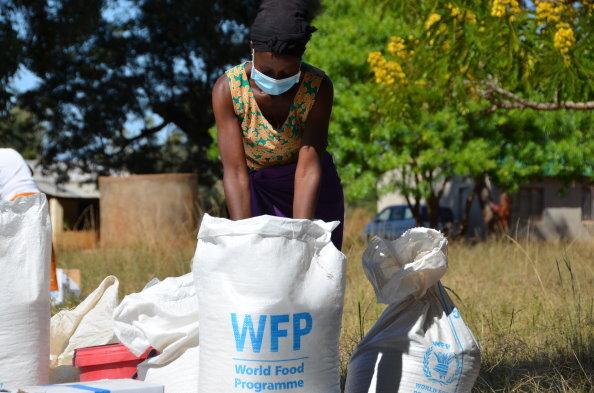Funds for emergency food assistance run dry as millions face hunger season in Zimbabwe

The appeal comes ahead of the ‘lean’ season, which risks pushing some 6.9 million people—nearly half of Zimbabwe’s population—into hunger by its March peak, according to the most recent national data. That includes roughly one-third of the rural population, who are expected to face “crisis” or “emergency” levels of hunger, and 2.3 million hungry urban dwellers. Others are spared from falling deeper into acute hunger thanks to assistance from WFP and partners.
“More than half of Zimbabweans in rural areas are left with no choice but to skip meals, reduce portions or sell off precious belongings in order to cope," said Francesca Erdelmann, WFP Zimbabwe’s representative. “We are deeply concerned that if WFP does not receive sufficient funding to reach four million people , families will be further pushed to the limit.”
The funding would allow WFP to provide the minimum amount of emergency food assistance to the most vulnerable 3.5 million rural and 550,000 urban dwellers, complementing the response of Zimbabwe’s government and other partners.
At least 7.6 million people have fallen into poverty this year — a million more than in 2019, according to the recent ZimVAC rural livelihoods assessment. Hyperinflation – a feature of the country’s economic challenges – has pushed the prices of basics beyond the means of most Zimbabweans.
COVID-19’s fallout has exacerbated the situation - making it especially hard for poor families to afford a nutritious diet, with incomes drying up due to the lockdown.
Subsistence farming families, who make up three-quarters of Zimbabwe’s population and produce most of its food, are also hurting because of a third successive drought-hit harvest this year.
While WFP delivers and saves lives with urgently needed humanitarian assistance, its work in Zimbabwe links with a strong resilience agenda to forge and protect developmental gains.
# # #
Video footage and case study stories available on request.
The United Nations World Food Programme is the 2020 Nobel Peace Prize Laureate. We are the world’s largest humanitarian organization, saving lives in emergencies and using food assistance to build a pathway to peace, stability and prosperity for people recovering from conflict, disasters and the impact of climate change.
Follow us on Twitter @wfp_media @WFP_Africa @WFP_Zimbabwe
Contact
For more information please contact (email address: firstname.lastname@wfp.org):
Claire Nevill, WFP/Harare,
Mob. +263 787 200557
Deborah Nguyen, WFP/Johannesburg,
Mob. +27 82 6790915
Frances Kennedy, WFP/ Rome,
Tel. +39 06 6513 3725, Mob. +39 346 7600 806
Tomson Phiri, WFP/ Geneva,
Mob. +41 79 842 8057
Jane Howard, WFP/ London,
Tel. +44 (0)20 3857 7413, Mob. +44 (0)796 8008 474
Shaza Moghraby, WFP/New York,
Mob. + 1 929 289 9867
Steve Taravella, WFP/ Washington,
Mob. +1 202 770 5993
